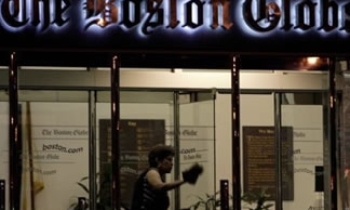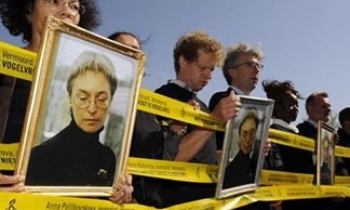BOSTON (Reuters) - A veteran Boston Globe reporter has been suspended for plagiarizing parts of a football column from another publication, the newspaper said on Tuesday in the latest incident to embarrass the U.S. media.
The Globe, which is owned by The New York Times Co., said it suspended sports writer Ron Borges for two months without pay because of a "football notes" column that ran on March 4 about a Seattle Seahawks football player.
Globe Editor Martin Baron said the column included material from a story published on February 25 by The News Tribune of Tacoma, Washington.
"The Globe does not tolerate plagiarism," Baron said in a report published in the Globe. "Extensive passages written by the Tacoma reporter were used verbatim in the column by Borges, and that is prohibited."
Borges, a Globe sportswriter for 24 years who was named Massachusetts Sportswriter of the Year four times and is a regular guest on a local sports radio station, was also barred from broadcast appearances over that period.
He was unavailable to comment.
The Globe has suffered national embarrassment in the past.
Two columnists -- Patricia Smith and Mike Barnicle -- lost their jobs in 1998 after fabricating columns or plagiarizing. A third columnist, Jeff Jacoby, who still writes for the paper, was briefly suspended on charges of plagiarism.
In Tuesday's report, Globe sports editor Joe Sullivan said Borges subscribed to an online notes exchange used by National Football League writers who share information ahead of Sunday notebook columns that run in many U.S. newspapers.
He said the Globe reporter had used language posted to the exchange and failed to attribute it to Tribune sports reporter Mike Sando, and that Borges was unaware the information had been published in Sando's February 25 column.
Borges's column contained a line at the bottom that said: "material from personal interviews, wire services, other beat writers, and league and team sources was used in this report."
ABOLISH THE PRACTICE
Sullivan said reporters use the shared notes as background but are not expected to lift language from one another.
"It's just for background and they should never be picking from it and using from it," said Arlene Morgan, associate dean of Columbia University's journalism school.
She said notes exchanges between sports reporters of rival publications should be reviewed and perhaps even abolished.
Two years ago, the Boston Globe admitted that one of its freelance writers had fabricated large chunks of a story about a seal hunt off Newfoundland that had never taken place.









